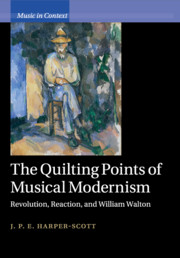Book contents
2 - Modernism, love, and truth
from PART II - RELATIONSHIP PROBLEMS
Published online by Cambridge University Press: 05 September 2012
Summary
Troilus, Cressida, and takeaway sex
The assumption of a male and female, female and female, or male and male subject position in a sexual relationship, in which each participant takes an externally given and predetermined gendered position, is an ideological commonplace of the world. Even in the democratic West, where there has been a gradual development towards acceptance of queer gender identities and sexual practices, gendering of some kind, as a butch lesbian, an exaggeratedly feminine transexual, a misogynistic gay man, a new-age metrosexual man,… is an ideological requirement. The ever-expanding list of sexual possibilities tends to reduce sexual impulses and behaviours to the pleasure-numbing variety of a 500-item Chinese takeaway menu. It is a small step from the enthusiastic liberal-bourgeois acceptance of a basically infinite range of (consensual) sexual practices to the image of a punter placing an order in some kind of hyper-solicitous brothel: ‘I'll have number 215 and then number 389 to finish’; ‘OK, madam, so that's double penetration while being strapped to the ceiling followed by being lathered in blancmange by three eunuchs.’ This liberality explicitly denies the claim that sex is a much less varied and indeed a more universal experience than postmodernism allows (multiple in its forms, but not as multiple as the dominant discourse would have us think). The claim that a sex- (or better a love-) relationship grants access to ‘truth’, and that ofa revolutionary sort, would of course be dismissed along with every other claim to universal truths of any kind.
- Type
- Chapter
- Information
- The Quilting Points of Musical ModernismRevolution, Reaction, and William Walton, pp. 45 - 80Publisher: Cambridge University PressPrint publication year: 2012



